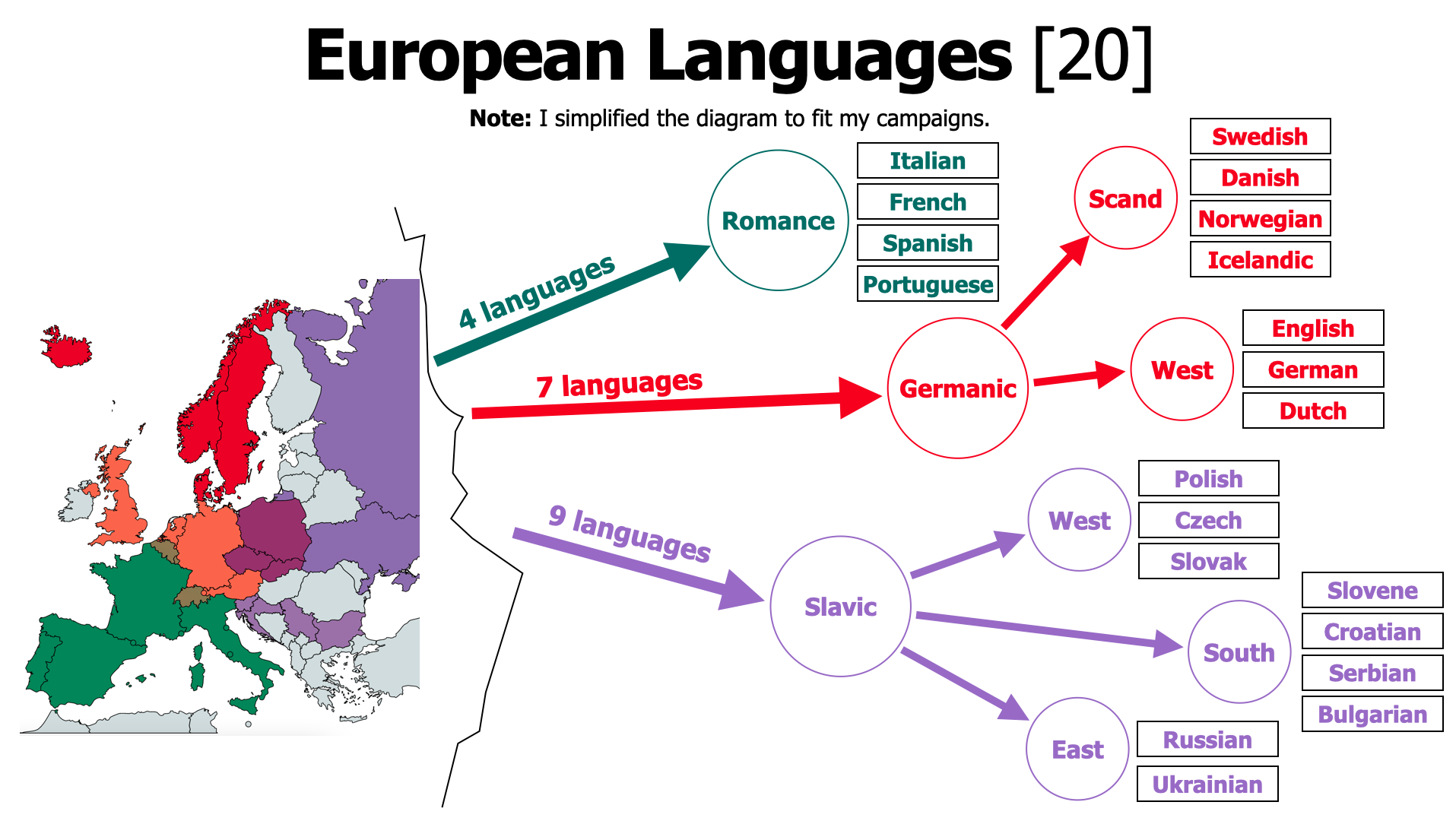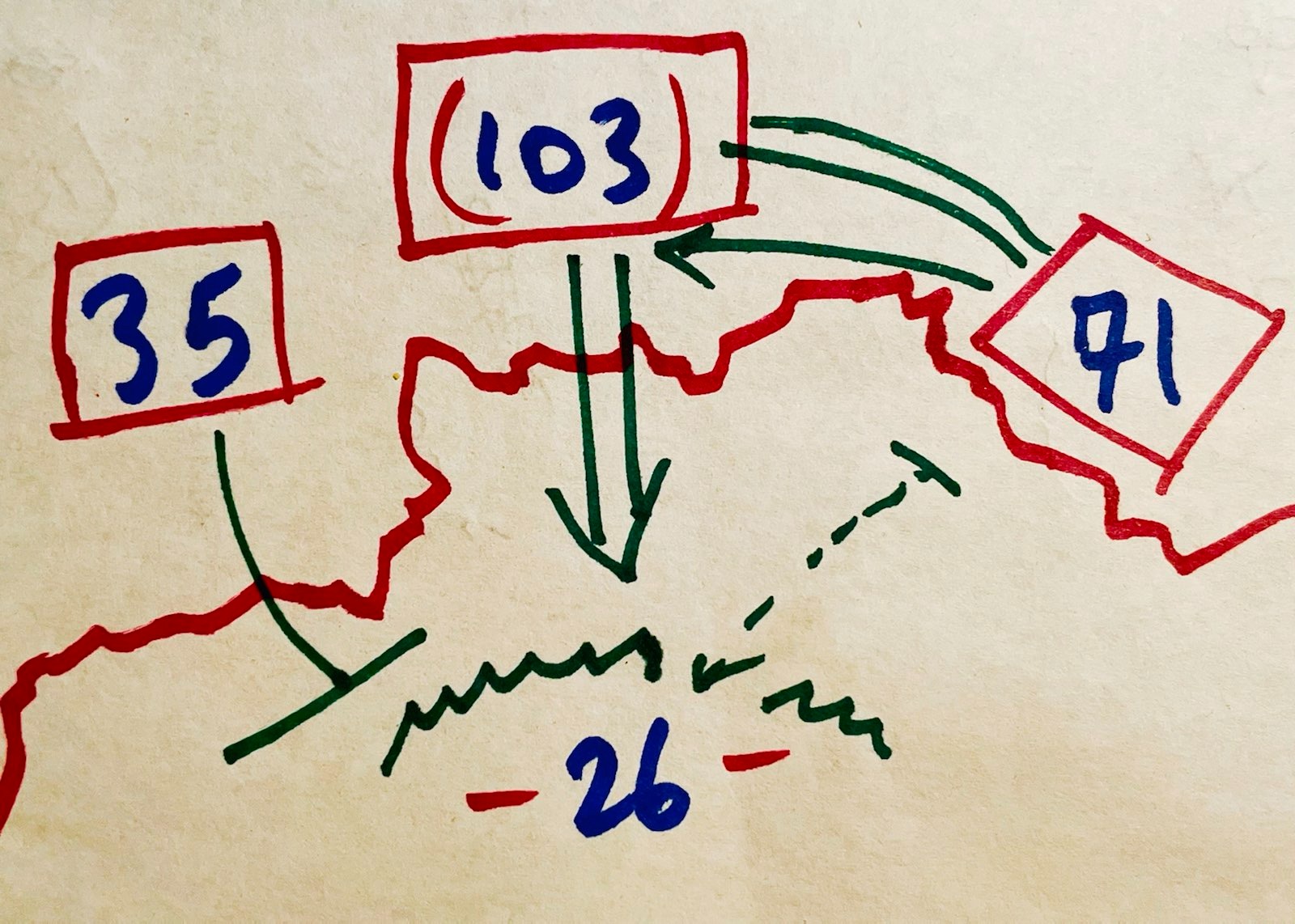At 10:23 the Adamian Empire rolled through the optimization country and took over duality theory. Through tanks built from examples and planes zooming through theoretical high ground, the Adamian army conquered the concept and blockaded the river behind, preventing escape.
That’s a typical battle of a typical shard of knowledge of a typical day for me. It’s the triplex mindset, or “3d chess”, the holy trinity of math, geography, and military. It’s a triple that’s applicable to all aspects of life—sports, academics, social interaction—and it is the lifeblood of the Adamian Empire.
Asking which one came first is like asking about the chicken and egg, except with 3 objects. I suppose they arrived jointly, though the recognition of the mathematical mindset came first—and for good reason.
Math is the natural outgrowth of curiosity, a desire to not just experience the universe, but also structure it, build platforms, and ascend. In producing numbers and theorems we discover power, the power of curiosity, application, and overwhelming confidence. We find comfort in math’s being the only field of absolute truth, quantifying our struggles, thus delivering us from the ignorance of not knowing how to measure. Scheduling time, assessing relative strength of entities (numbers), and describing goals are all vital mathematical projects. Extend math to shapes—grids, diagrams, plans—and we transform into the second member of the triplex: geography.
To know where things are is now taken for granted1, but that is geography, the spirit of the discoverer, cartographer, and strategist. For me, visualizing space is an expression of geography, and when I solve a problem or game, my strategies turn into maps, the components clustered and positioned based on proximity, a systematic analysis from high-level goal to granular technical detail. A map of tasks is optimization of strategy, knowing where to go and what to revisit upon hitting a quandary.
We now have quantity and location, and one final attribute completes the set: movement, as expressed through military strategy and execution. It is the last member of the triplex, as it is derived from mathematics (troop counts, distances) and geography (locations, strategic points). But movement affords military its own distinctiveness. When I undergo a process—solve a problem, slam a shuttlecock—I am maneuvering soldiers, clashing on the field. With movement comes momentum, and with momentum comes morale. That’s how I stay energized—the continuation and consistency of campaigns. When I reflect on myself, my victories and defeats, and their subtleties, I consider the situation first from a war strategy perspective—who benefits, what motives exist, and so on.
It is said that everything comes in threes. The triplex mindset is flexible and dynamic, but most importantly, empowering. I know I can take solace in math, geography, and military, because rather than being events (which are by nature volatile—they can be good or bad and our views of them change over time—and a means, not an end), they are foundational approaches, the characteristics that make up events. As such, if I declare “math is mine”, I suddenly own2 all the events I analyze through mathematics (which is hopefully all events!), and I’m happy.
It’s a framework for reflection and analysis. It’s a producer of joy and glory. It’s the triplex mindset.
Example
Here is an example campaign.

Suppose I wanted to learn a large number of European languages. I'd bank on the fact that languages in language families are very similar to each other, so that if I grab the ‘essence’ of that family, learning the quirks of constituent languages would allow me to grasp them.
The math is in the number of languages, the geography is from the map, and the military is from the movements.
Footnotes
1 With a GPS, this is true, but give the average Joe a map and watch his bewilderment…
2In my mind, and the mind is powerful indeed.
